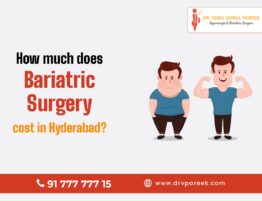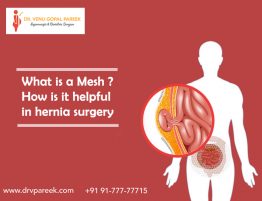
The thyroid is a small, butterfly-shaped gland. The thyroid is located in the centre of the lower neck, below the voice box and around the front half of the windpipe. It looks like a fly just above the collarbone and has two halves (lobes) connected by a small piece of tissue (isthmus).
The thyroid is one of the endocrine glands that produce hormones to regulate physiological functions in your body, such as metabolism, heart rate, sweating, and energy intake. Other endocrine glands include the pituitary, adrenal, and parathyroid glands, and unique cells in the pancreas. It also plays a role in keeping the organs functioning and helps the body conserve heat.
Sometimes the thyroid produces too much hormone. It can also develop structural problems, such as swelling and growth of a cyst or nodule. This problem may require thyroid surgery. Thyroid surgery involves removing all or part of the thyroid gland. The doctor will perform this operation in the hospital while the patient is under general anaesthesia.
This article provided by Dr Venu Gopal Pareek gives information about what type of Thyroid Disorders patient should undergo surgery?
What is a thyroidectomy?

Thyroidectomy is the surgical removal of the diseased thyroid gland. Your thyroid is located in front of your neck, below the larynx (voice box). It consists of two parts, one on each side of the windpipe (windpipe). Your thyroid plays a vital role in regulating your body’s metabolism and calcium levels. Thyroid removal is the treatment of various thyroid diseases, disorders and conditions.
Thyroid removal is a common but significant operation with serious risks and potential complications. You may have less invasive treatment options. Before having your thyroid removed, consider getting a second opinion about all of your treatment options.
Types of thyroidectomy

Your doctor may recommend thyroid removal to treat various thyroid diseases, disorders, and conditions. Your doctor may only consider removing the thyroid if other treatment options with a lower risk of complications have not been effective. Talk to your doctor about possible treatment options and consider getting a second opinion before having a thyroid removal.
Thyroid surgery is usually classified as partial thyroid removal or full thyroid removal. You and your thyroid surgeon should discuss the extent of your thyroid surgery. Types of thyroidectomy as follows:
- Open thyroid biopsy: A rarely used operation that involves cutting a nodule directly;
- Hemi-thyroidectomy or lobectomy of the thyroid gland: In this procedure one flap (half of) the thyroid gland is removed.
- Isthmusectomy: Removal of only the bridge between the two lobes; this procedure is used mainly for small tumours located on the isthmus.
- Total or near-total thyroid removal: The removal of all or most of the thyroid tissue.
The cause of surgery determines recommendations regarding the degree of thyroid surgery. For example, a lump that is confined to one side of the thyroid can be treated with hemithyroidectomy. If you’re being tested for a large bilateral goitre or thyroid cancer, you may have a recommendation for total thyroid removal. However, the scope of surgery is a complex medical decision and a complicated personal decision and should be made with your endocrinologist and surgeon.
Other procedures:-
A Doctor may perform Lymphadenectomy or lymph node removal or biopsy in case of confirmed or suspected thyroid cancer.
Thyroid Disorders -when to undergo surgery?

Surgery is the recommended treatment for many thyroid conditions. This could be one of the following:
- Benign (non-cancerous) thyroid tumours, nodules, or cysts
- A large or multinodular goitre causing obstructive symptoms of difficulty breathing or swallowing
- Hyperthyroidism (overactive thyroid) when radioactive iodine and medication are not an option
- Thyroid cancer
- Thyrotoxicosis, also called thyroid crisis or thyroid storm is hyperthyroidism that suddenly worsens that can be life-threatening.
- Solitary thyroid adenoma (benign tumour)
- Graves’ disease (hyperthyroidism or thyrotoxicosis)
- Recurrent thyroid cyst
- Where the node type is not clear
Your operation should be performed by an experienced surgeon who performs thyroid surgery regularly. Don’t hesitate to ask the surgeon about thoughts such as several thyroid surgeries performed, possible complications (including your complication rate), and alternatives to surgery.
What can a patient expect before the surgery?

After you choose to have surgery, you will be given a preoperative assessment which includes thyroid function, calcium and other blood tests. You may also have a chest x-ray, CT scan, and electrocardiogram (EKG). You can also check your vocal cords. The hospital will tell you how long you can stay in the hospital (usually one to four days) and what you should take to the hospital.
What happens during the surgery?

The operation is performed under general anaesthesia. An incision is usually made through the lower fold of the neck. Many structures pass through the neck, during surgery, the surgeon will take care to identify the various arteries, veins and nerves. Particular attention is paid to the nerves that supply your vocal cords, as well as the blood supply to the parathyroid glands, which control calcium metabolism. The thyroid gland has a very rich nerves blood supply and to avoid bleeding; the arteries are carefully attached and tied before the gland is removed.
After removing the part of the thyroid that needs to be removed, the incisions are closed. This can be done with stitches (threads), clips, tape (Steristrip). If stitches are used, they will be removed after a few days. Sometimes dissolving stitches are used. Sometimes a drainage tube is inserted down the throat to help drain excess fluid during the first 24 to 48 hours.
Conclusion:
Thyroid problems often run in families. If a family member is sick, they should be encouraged to discuss with their doctor whether a thyroid test is necessary. If you have any questions or concerns about your thyroid disorder, you should talk to your doctor or specialist as they can best advise you. You can also contact Dr Venu Gopal Pareek for more information.
For more general information about surgery as a cancer treatment, meet Dr Venu Gopal Pareek by booking your appointment at 091777 77715.







